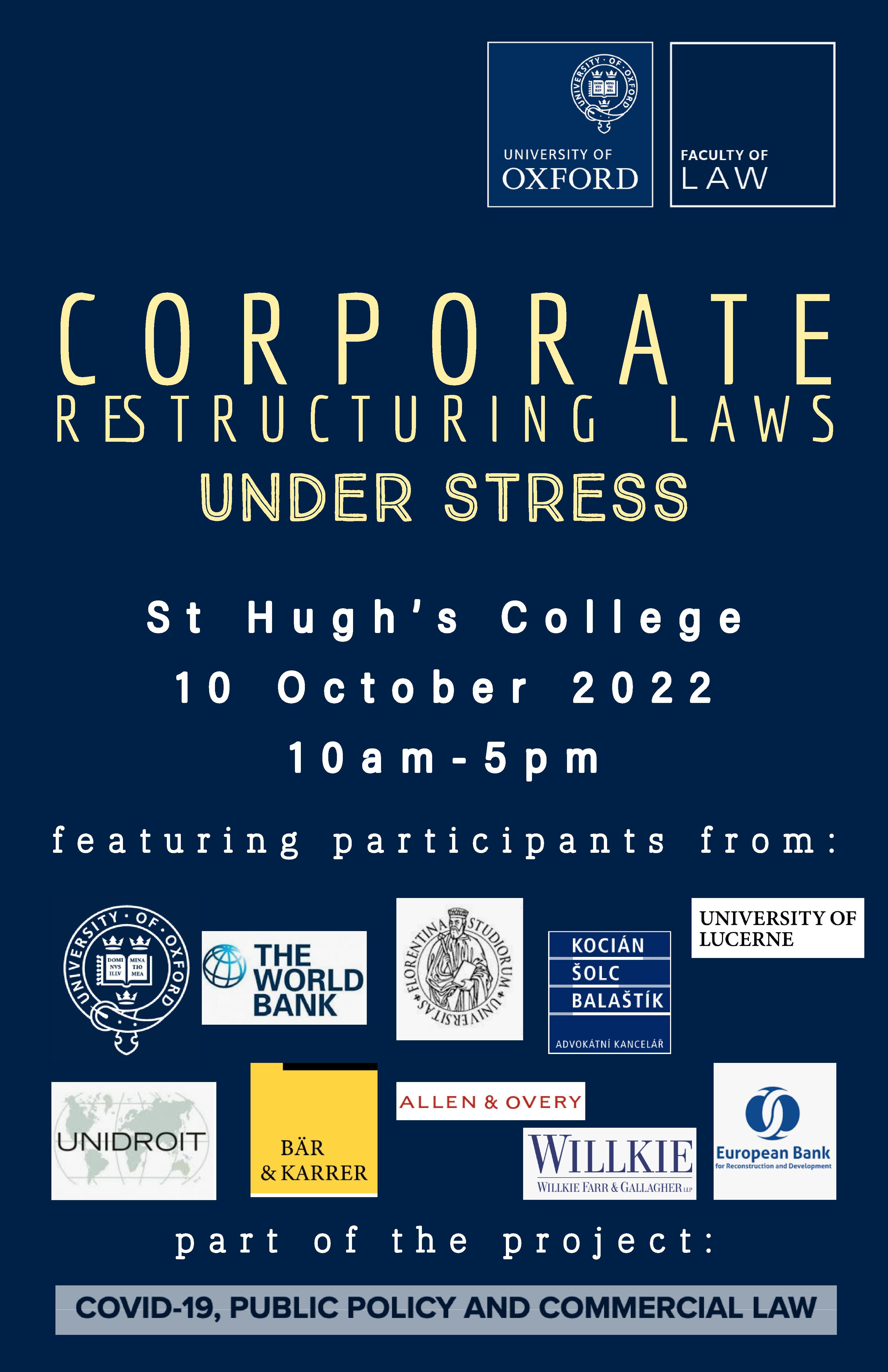Corporate restructuring laws under stress
The last two years have been characterised by massive bail-outs and extensive restructuring law reforms. Could governments have done better?

Over the past 2.5 years, events such as the COVID-19 pandemic and the war in Ukraine and associated energy crisis have put societies and businesses under extreme stress. Governments around the globe have extended massive packages of relief to businesses, often in the form of loans (or guarantees for loans) rather than cash grants, and continue to do so. Much of this new debt will foreseeably not be repaid, and will need to be restructured if firms are to avoid insolvency. In many jurisdictions, the legal framework that will form the backdrop to these restructuring negotiations is different to that which would have governed pre-pandemic restructurings, because governments have been experimenting with a range of reforms to insolvency and restructuring law at the same time as extending bail-outs to businesses. This is particularly the case within the EU, where the pandemic coincided with a period of intensive investment in restructuring-related law reform. Whether these reforms have improved the legal framework, and whether this framework is appropriate for the treatment of the above-mentioned debt overhang, are open (and important) questions.
This conference will bring together experts from several jurisdictions to reflect critically on the ways in which restructuring laws were and are being used and (where applicable) reformed over the past 2.5 years, and on expected routes to restructuring in the years ahead, with a view to identifying the lessons that can be learnt for future periods of crisis. As geopolitical shocks appear to occur with increasing frequency, such lessons are highly relevant.
This conference is supported by the Faculty’s Law Research Support Fund, and is part of the project ‘Covid-19, public policy and commercial law’, which was funded by the University’s COVID-19 Research Response Fund.
Registration: free, but places limited. Click here to register.
Organisers: Kristin van Zwieten and Horst Eidenmueller


 Add to calendar
Add to calendar


